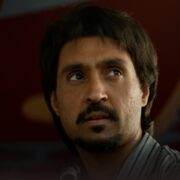MARY SHELLEY: An Exquisite Elle Fanning Owns This Lush Biopic
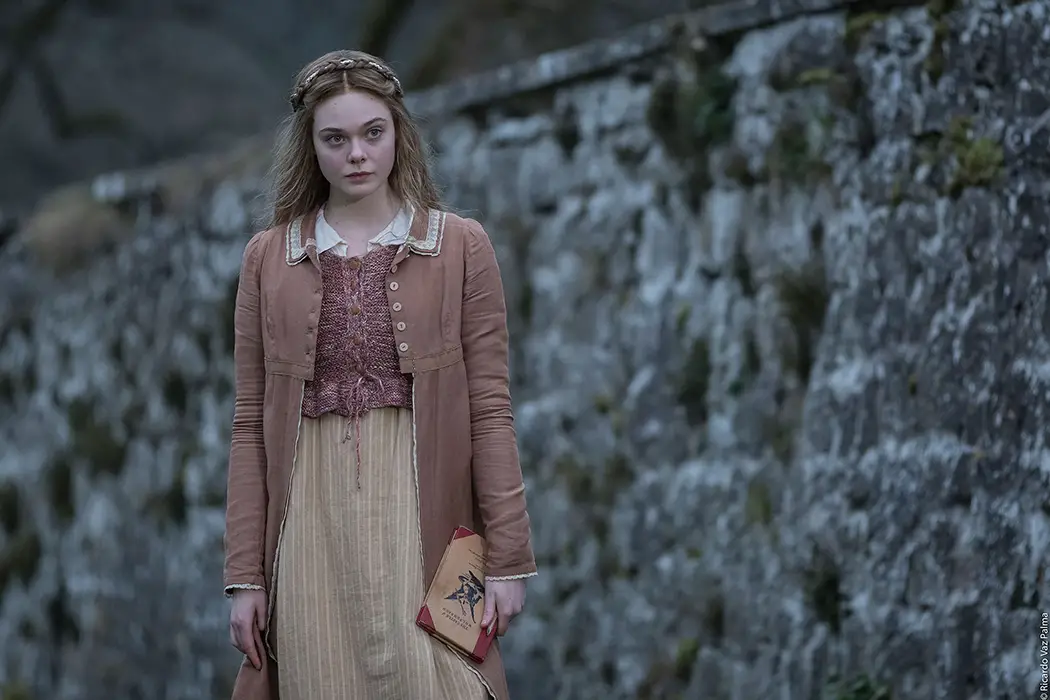
Lee Jutton has directed short films starring a killer toaster,…
Everyone has heard of Frankenstein – the quintessential Gothic novel, published in 1818, about a troubled scientist and the grotesque creature he brings to life. Yet despite decades of study and adaptations of her novel, it wasn’t until the late twentieth century that Frankenstein’s author began to receive the acclaim she deserved. Often overshadowed by her famous parents and husband during her lifetime despite having more than enough talent herself, Mary Shelley (born Mary Wollstonecraft Godwin) has since evolved into a cult feminist figure, admired for her incredible storytelling ability as well as her unorthodox lifestyle.
In the new biopic Mary Shelley, director Haifaa Al-Mansour shows us how Mary’s passionate but troubled romance with the poet Percy Bysshe Shelley helped light the spark of creation in the young writer. Thanks to an exquisite performance from Elle Fanning in the titular role, the film is a long overdue tribute to Mary Shelley and other women like her who struggled to receive their due because of their gender.
When Mary Met Percy
Mary (Fanning) is the teenage daughter of renowned political philosopher William Godwin (Stephen Dillane) and unconventional feminist author Mary Wollstonecraft, who died less than a month after Mary’s birth. Growing up in 19th century London, Mary is educated by her father in her mother’s image, with all of her rebellious, bohemian views about life, love, and happiness. She dreams of becoming a published author herself but struggles under the weight of her famous parents – not to mention, the strict stepmother (Downton Abbey’s Joanne Froggatt) with whom she frequently clashes.
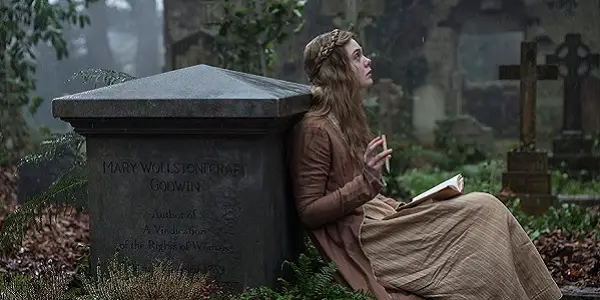
On a trip to visit friends in Scotland, Mary is introduced to the young poet Percy Bysshe Shelley (Douglas Booth) and is immediately wooed by his passionate, articulate words. When she returns to London, Percy is close behind, becoming a student of her father’s. They begin an intense love affair that earns them the scorn of all around them, including Mary’s father. (It doesn’t help that Percy is currently married to another woman, with whom he has a daughter.)
Desperate to escape the judgmental eyes of London society in the wake of a heartbreaking personal tragedy, Mary and Percy embark on a tour of Europe. They are accompanied by Mary’s stepsister, Claire (a delightful Bel Powley), who is just as determined to live a more exciting and unconventional life as her sister and her lover. Enter the ultimate rebel poet, Lord Byron (Tom Sturridge) and his Geneva estate, which ends up being the birthplace of Mary’s greatest work, Frankenstein. Fueled by abandonment, loneliness, and disappointment, Mary channels the tumultuousness of her life into her monstrous masterpiece.
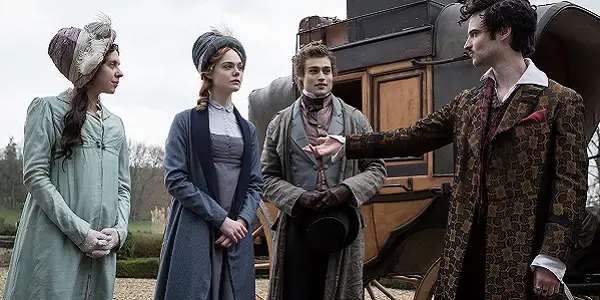
Bringing One’s Inner Demons To Life
When Mary and Percy first meet, the chemistry between Fanning and Booth is wonderfully reminiscent of young love at its newest and most exciting; it is easy to get carried away by the torrid waves of their romance, including foggy makeout sessions beside Mary Wollstonecraft’s grave and intimate whispers through the bookshelves in Mary’s father’s shop. It helps that the two actors are ridiculously attractive, both with perfectly flushed red cheeks that I couldn’t recreate myself even if I bought out the entirety of Sephora.
One gets so invested in the early stages of their love story that as the film progresses – and Mary’s depression deepens, and Percy’s egotism expands – one feels one’s heart breaking right along with Mary’s. The photogenic stars and their impeccably detailed historical surroundings are lushly photographed by cinematographer David Ungaro, making even the most painful moments absolutely breathtaking to look at.
Ironically, for a film about writers, the script by Al-Mansour and Emma Jensen is probably the weakest piece of Mary Shelley. This is primarily because of the dialogue. Mary Shelley was barely 17 when she began her affair with Percy, who at the age of 22 was not much older; she was only 20 when Frankenstein was published. One must keep reminding oneself how young they were at the time in order to not laugh out loud at some of the hyper-pretentious pronouncements that come out of their mouths during the course of Mary Shelley.
They might be poetic geniuses, but they’re also occasionally quite annoying – especially Percy, who constantly claims Mary is not holding true to her unconventional values just because she claims to love only him and has no desire to have an affair with anyone else. (Needless to say, that is not the case for Percy.) Fortunately, the actors are talented and appealing enough to wrestle even the most breathless dialogue into submission.
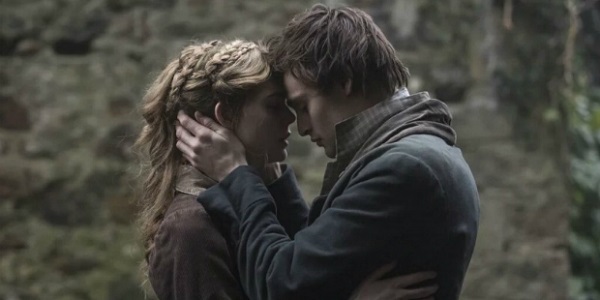
While Booth does an admirable job at conveying all of Percy’s various contradictions, both the charming and the unsavory, it is Elle Fanning who owns this film. Her performance, charting Mary’s whirlwind journey from dreamy young girl to disenchanted young woman in only a few short years, is a heartbreaking portrait of how society has always treated young women who dare to defy its conventions.
The role feels like the culmination of Fanning’s own remarkable evolution – from child actor in the shadow of her older sister to acclaimed star in her own right. Indeed, only a truly great actress could hold the audience’s attention when a scene stealer like Bel Powley is around. As the delightfully impetuous Claire, who follows her sister into bohemian squalor and embarks on a misguided affair with Lord Byron, Powley provides an earthy, spirited foil to Fanning’s ghostly, Gothic gloom. She isn’t all comic relief, though, as Claire’s poignant story also highlights the numerous ways in which this era was so much kinder to men than it was to women.
Mary Shelley: Conclusion
It’s no coincidence that Mary Shelley was made by women; I cannot imagine a man being able to present this uniquely female form of personal and artistic struggle in a way that would hit home as deeply as this.
As the first female filmmaker in her native land of Saudi Arabia, and a controversial figure in her own right, it is clear that Al-Mansour was born to bring Mary Shelley’s story to the big screen. Her film will summon up all of one’s righteous feminist anger and make one appreciate the accomplishments of Mary and those like her all the more.
What do you think? Does Mary Shelley sound overly pretentious or incredibly inspiring? Share your thoughts in the comments below.
Mary Shelley is in theaters in the U.S. on May 25, 2018 and in the UK on July 6, 2018. You can find more international release dates here.
Does content like this matter to you?
Become a Member and support film journalism. Unlock access to all of Film Inquiry`s great articles. Join a community of like-minded readers who are passionate about cinema - get access to our private members Network, give back to independent filmmakers, and more.
Lee Jutton has directed short films starring a killer toaster, a killer Christmas tree, and a not-killer leopard. Her writing has appeared in publications such as Film School Rejects, Bitch: A Feminist Response to Pop Culture, Bitch Flicks, TV Fanatic, and Just Press Play. When not watching, making, or writing about films, she can usually be found on Twitter obsessing over soccer, BTS, and her cat.

